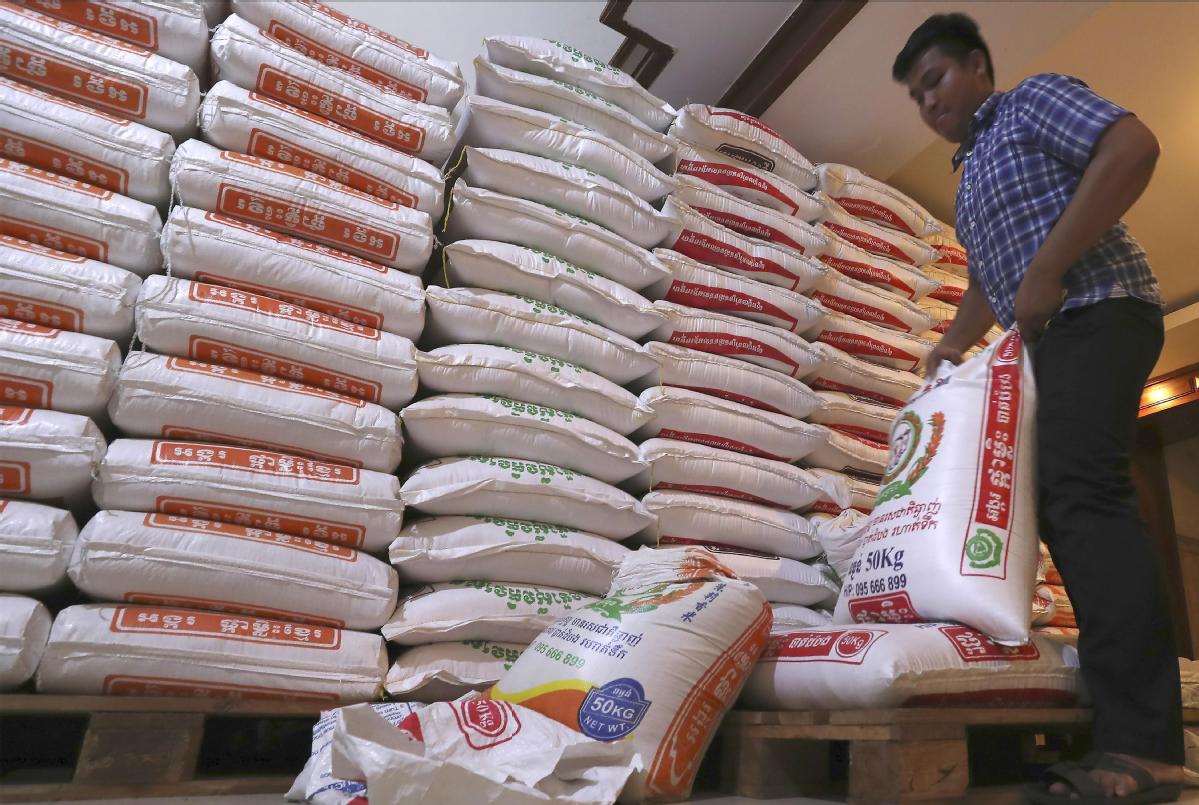Concern mounts over food supplies


Fears voiced as some nations impose export restrictions
Editor's note: The world faces huge challenges during the COVID-19 outbreak, and maybe even greater ones when it is over. Here, in the ninth part of a series titled "One World, One Fight", we look at how countries can work together to fight the virus and meet the challenges when the pandemic ends.
As many countries begin to ease measures imposed to contain the novel coronavirus pandemic, Nguyen Quang Hoa, the founder of one of Vietnam's biggest rice exporters, has one key issue on his mind.
He hopes that 12,500 metric tons of his sticky rice will successfully reach its destinations.
Hoa, the founder of Duong Vu Co, said his rice is usually sold to China-his largest market, Japan, South Korea and some Southeast Asian countries. In March, the Vietnamese government said it would restrict rice shipments due to concerns that global demand would rise as the outbreak disrupted supply chains.
More than 100 traders in Vietnam, including Hoa, have been affected by the government measure.
Vietnam, the world's third-largest rice exporter, resumed the trade this month, but Hoa said hundreds of thousands of tons of the staple are spoiling at the country's ports as a result of the curb on exports.
"Despite the ban being lifted, I will still lose money even if the rice is delivered to customers as scheduled, due to an excess of domestic grain being hoarded at ports. Some of this is rotting due to poor storage," he said.
Amid the COVID-19 pandemic, some countries have imposed export restrictions on food and agricultural products because of fears over insufficient domestic supplies.
Export controls on medical supplies such as face masks and surgical gowns are also affecting the global response to the growing threat from the outbreak.
On March 20, Russia, the world's largest wheat exporter, announced a 10-day ban on exports of buckwheat and rice over concerns about panic buying in supermarkets. Kazakhstan and Ukraine followed suit shortly afterward. On March 30, Cambodia announced limits on exports of some agricultural products, and these took effect on April 5.
In Turkey, exports of lemons have been restricted, while Serbia has announced a ban on exports of sunflower oil. Exports of legumes have been banned in Egypt for three months.
Hoa said: "For people in countries that depend on food imports, the restrictions make it difficult for them to buy supplies. Farmers and dealers in countries that depend on food exports for their livelihoods, lose their jobs. To a certain extent, it's a lose-lose situation."


















